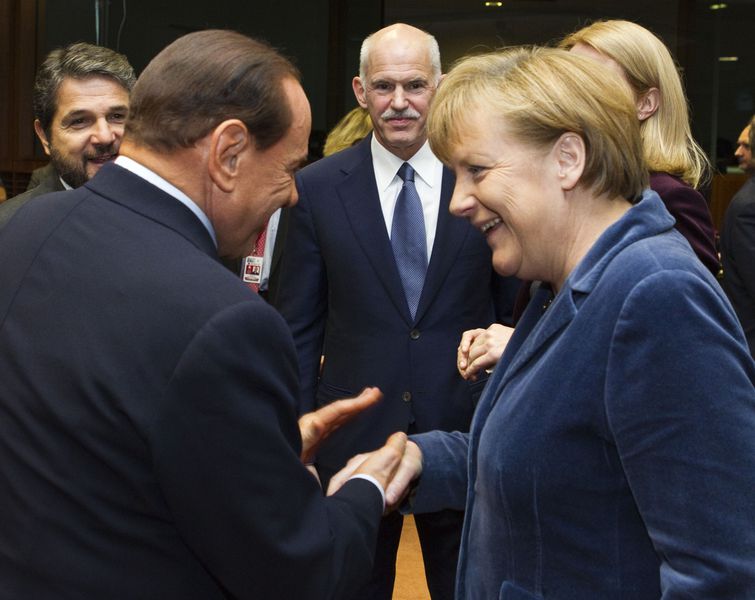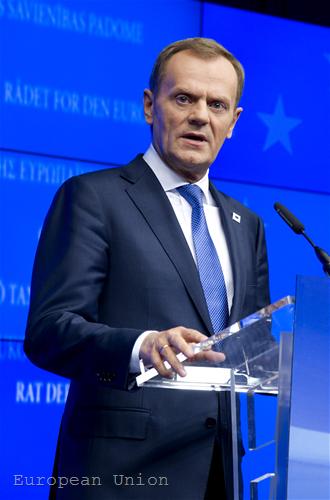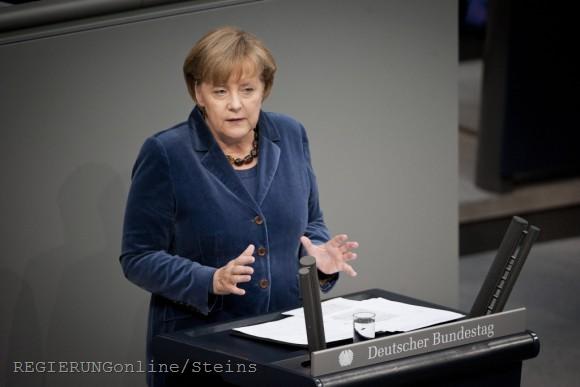All the Power to the Euro Area
Ralitsa Kovacheva, October 31, 2011
 The eurozone leaders were strongly criticised for their decisions from 26 October not being sufficiently clear, explicit and detailed. This is true, because behind the vague phrases there are specific figures, which the proper solution of the problem depends on. But besides the figures there is something else. Against the backdrop of the measures for Greece and the rescue fund, "organisational" decisions, related to the euro area governance, logically remained in the background. Indeed, they are very important in the long run, while distributing the second most important resource after money – the power in the euro area.
The eurozone leaders were strongly criticised for their decisions from 26 October not being sufficiently clear, explicit and detailed. This is true, because behind the vague phrases there are specific figures, which the proper solution of the problem depends on. But besides the figures there is something else. Against the backdrop of the measures for Greece and the rescue fund, "organisational" decisions, related to the euro area governance, logically remained in the background. Indeed, they are very important in the long run, while distributing the second most important resource after money – the power in the euro area.
Before serving the main 'menu' of intergovernmental ideas, the leaders stressed in their statement the importance of the economic governance package, which will come into force in January 2012 and will be strictly applied as part of the European semester - procedures for monitoring and coordination of budgetary and economic policies of EU countries. On the basis of the so-called 'Six Pack' and the Euro Plus Pact, the eurozone countries commit to implement some additional measures: - By the end of 2012 a year to adopt rules on balanced budget, preferably at constitutional level;
- To reinforce national fiscal frameworks, ensuring that budgets based on independent growth forecasts;
- National parliaments "to take into account recommendations adopted at the
EU level on the conduct of economic and budgetary policies";
- To consult with the Commission and other Member States before the adoption “of any major fiscal or economic policy reform plans with potential spillover effects” on the whole euro area;
- To stick to the recommendations of the Commission regarding the implementation of the Stability and Growth Pact.
There is a clear message for more control in every line of the statement,  especially when it comes to countries, violating discipline and being placed in excessive deficit procedure. In this case, "the Commission and the Council will be enabled to examine national draft budgets and adopt an opinion on them before their adoption by the relevant national parliaments. In addition, the Commission will monitor budget execution and, if necessary, suggest amendments in the course of the year". Such a proposal has been made by European Commission President Jose Manuel Barroso in the so called "Roadmap for stability and growth" just days after France and Germany have committed to provide a package of measures to tackle the crisis. There are some ideas in the statement with an entirely Franco-German origin. For more than a year France and Germany have been seizing the initiative in the decisions-making of the euro area and therefore it is not a coincidence that they are the main designers of its governance model.
especially when it comes to countries, violating discipline and being placed in excessive deficit procedure. In this case, "the Commission and the Council will be enabled to examine national draft budgets and adopt an opinion on them before their adoption by the relevant national parliaments. In addition, the Commission will monitor budget execution and, if necessary, suggest amendments in the course of the year". Such a proposal has been made by European Commission President Jose Manuel Barroso in the so called "Roadmap for stability and growth" just days after France and Germany have committed to provide a package of measures to tackle the crisis. There are some ideas in the statement with an entirely Franco-German origin. For more than a year France and Germany have been seizing the initiative in the decisions-making of the euro area and therefore it is not a coincidence that they are the main designers of its governance model.
As suggested by Paris and Berlin, the euro area will be governed by leaders' summits, which will be held at least twice a year and if possible - after European Council meetings. The statement delicately avoids the word "government", as originally Angela Merkel and Nicolas Sarkozy called the configuration of the 17 leaders. Until a President of the Euro Summit is designated, the meetings will be chaired by European Council President Herman Van Rompuy. While the leaders are supposed to take major policy decisions and to provide general guidelines, the Eurogroup (the finance ministers) will “remain at the core of the daily management of the euro area”.
The statement of the 17 stressed that the strengthening of the eurozone governance must be done “while preserving the integrity of the European Union as a whole”. The possibility of dividing Europe into two camps, or "at two speeds" was strongly criticised by countries such as Poland and Great Britain, who insisted that countries outside the euro area cannot be isolated from the 17 inside. After the European Council and before the eurozone summit on 26 October, Polish Prime Minister Donald Tusk announced that it had been agreed the EU members willing to join the euro area to take part in the Eurogroup's work. Such a commitment, however, is not enshrined in the statement of the 17, although there are detailed explanations of how to maintain the relationship between the euro area and the remaining 10 countries.
But we can see that there is softening in the latest decisions compared to the initial ideas regarding the involvement of the Community institutions in the intergovernmental affairs. The European Commission gets a role in managing the eurozone, as well as the European Parliament. In response, just a day after the summit, European Commission President Jose Manuel Barroso appointed European Commissioner for Economic and Monetary Affairs Commissioner Olli Rehn as his deputy with special responsibilities in terms of the euro area.
 Strengthening the economic union and improving fiscal discipline in the euro area will obviously require changes in the EU treaty. Options for limited changes, related specifically to the economic governance of the euro area, without changing the overall institutional architecture, will be examined and discussed by the leaders again in December. For such changes insisted both France and Germany, as well as Commission President Jose Manuel Barroso and European Parliament President Jerzy Buzek. However, although all argue that changes aim strengthening of the E in the Economic and Monetary Union, it is unclear at this stage whether all imagine the same way to that goal. Generally, all are unanimous in saying we need ‘more Europe’. But when you hear the disputes between the institutions - the Member States (the Council), the Parliament and the Commission, one inevitably asks ‘More, but for whom’?
Strengthening the economic union and improving fiscal discipline in the euro area will obviously require changes in the EU treaty. Options for limited changes, related specifically to the economic governance of the euro area, without changing the overall institutional architecture, will be examined and discussed by the leaders again in December. For such changes insisted both France and Germany, as well as Commission President Jose Manuel Barroso and European Parliament President Jerzy Buzek. However, although all argue that changes aim strengthening of the E in the Economic and Monetary Union, it is unclear at this stage whether all imagine the same way to that goal. Generally, all are unanimous in saying we need ‘more Europe’. But when you hear the disputes between the institutions - the Member States (the Council), the Parliament and the Commission, one inevitably asks ‘More, but for whom’?
 | © The Council of the European Union
| © The Council of the European Union | © European Union
| © European Union | © REGIERUNGonline/Steins
| © REGIERUNGonline/Steins Klaus Regling | © Council of the EU
Klaus Regling | © Council of the EU Mario Centeno | © Council of the EU
Mario Centeno | © Council of the EU Mario Centeno | © Council of the EU
Mario Centeno | © Council of the EU